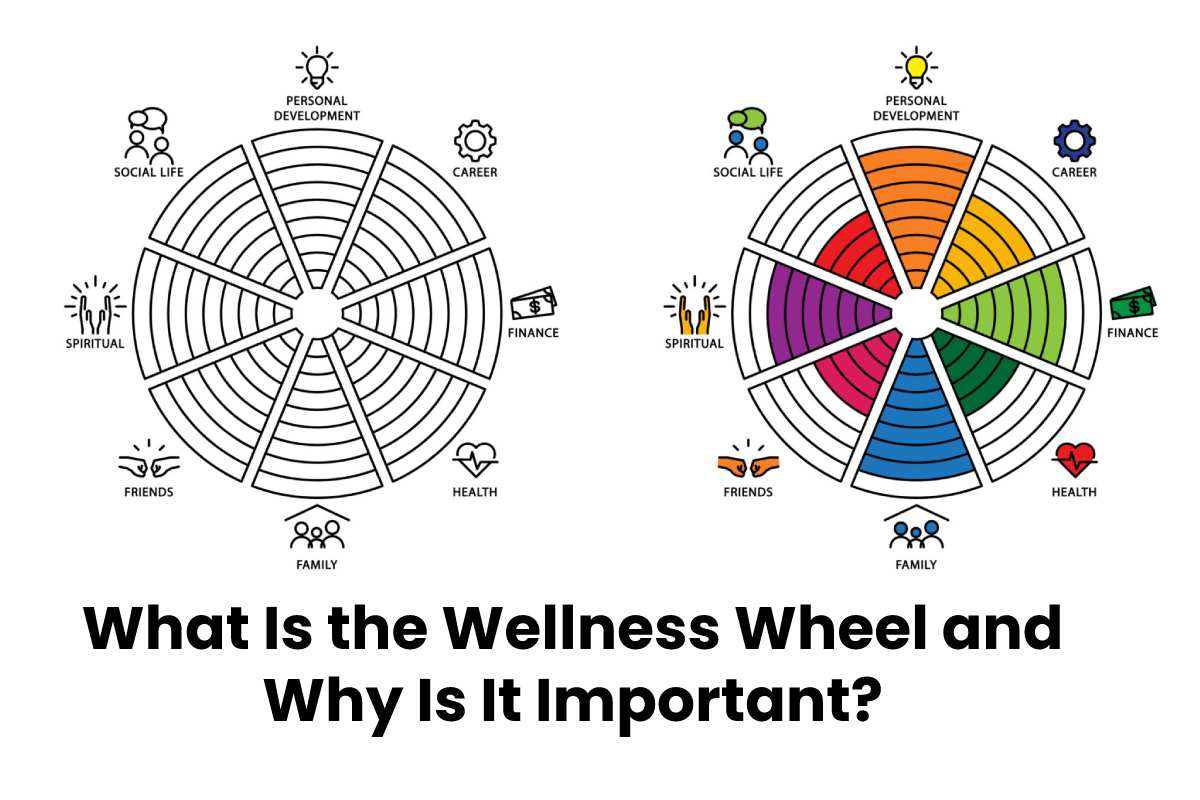
The wellness wheel is a visual representation of what it means to live a healthy life. It includes all the different dimensions of wellness, such as physical, emotional, intellectual, and spiritual health.
By understanding the wellness wheel and how it applies to your life, you can work on living a more balanced and fulfilling existence. In this guide, we will go over each dimension of the wheel and explain why it is important for your overall well being.
Table of Contents
An Introduction: The Wellness Wheel
A wellness wheel is a tool that was first developed by Dr. Bill Hettler in the 1970s. It is based on the idea that there are different dimensions of wellness, all of which contribute to a person’s overall health and wellbeing. Each dimension is equally important in achieving a balanced and healthy life.
Why Is the Wellness Wheel Important?
The wellness wheel is important because it helps us understand that there are different areas of our lives that we need to focus on to be healthy and happy. It’s not enough to just eat right and exercise; we also need to take care of other aspects of ourselves. These include our emotional health, socializing with others, finding ways to connect with our spirituality, etc.
So, now that we know what the wellness wheel is and why it’s important, let’s take a closer look at each dimension in more detail.
Physical Health: The Foundation of Wellness
Physical health is the foundation of wellness. It includes things like exercise, good nutrition, getting enough sleep, and maintaining a healthy weight. When we are physically healthy, we have more energy and are better able to cope with stress. We are also less likely to get sick.
To maintain physical health, it is important to:
- Eat a balanced diet that includes plenty of fruits, vegetables, and whole grains.
- Get at least 30 minutes of moderate exercise most days of the week.
- Get enough sleep. Most adults need between seven and eight hours per night.
Emotional Health: The Key to Resilience
Emotional health is the key to resilience. It includes things like self-care, stress management, and healthy coping skills. When we are emotionally healthy, we are better able to deal with the ups and downs of life. We have a positive outlook and can more easily bounce back from setbacks.
To maintain emotional health, it is important to:
- Make time for yourself. This can include things like taking a bath, reading a book, or going for a walk.
- Find healthy ways to cope with stress. This can include things like yoga, journaling, or spending time with friends and family.
- Develop healthy coping skills. This can include things like problem-solving, positive self-talk, and deep breathing.
Intellectual Health: The Power of Learning
Intellectual health is the power of learning. It includes things like critical thinking, open-mindedness, and curiosity. When we are intellectually healthy, we can see the world more clearly and make better decisions. We are also more likely to challenge ourselves and grow in our personal development.
To maintain intellectual health, it is important to:
- Be open to new ideas. This can include things like attending a lecture, reading a book on a topic you’re not familiar with, or talking to someone with a different point of view.
- Stimulate your mind. This can include things like doing puzzles, learning a new language, or taking a class.
- Be curious. This can include things like asking questions, doing research, and exploring new places.
Social Health: The Importance of Connecting
Social health is the importance of connecting. It includes things like communication, relationships, and community involvement. When we are socially healthy, we feel supported and connected to others. We also have a sense of belonging and purpose.
To maintain social health, it is important to:
- Communicate openly and honestly with others. This can include things like having difficult conversations, setting boundaries, and expressing your needs.
- Build strong relationships. This can include things like spending time with loved ones, being a good friend, and being involved in your community.
- Find your sense of belonging. This can include things like volunteering, attending religious or spiritual gatherings, or being a part of a club or organization.
Spiritual Health: The Journey Inward
Spiritual health is the journey inward. It includes things like self-awareness, purpose, and values. When we are spiritually healthy, we have a sense of who we are and what we believe in. We also feel connected to something larger than ourselves.
To maintain spiritual health, it is important to:
- Get in touch with your values. This can include things like exploring your beliefs, identifying what is important to you, and living according to your principles.
- Find your purpose. This can include things like setting goals, pursuing your passions, and making a difference in the world.
- Connect with something larger than yourself. This can include things like nature, a higher power, or the human community.
Environmental Health: The Importance of Our Surroundings
Environmental health is the importance of our surroundings. It includes things like air quality, water quality, and noise pollution. When we are environmentally healthy, we live in an environment that supports our health and wellbeing.
To maintain environmental health, it is important to:
- Be aware of the quality of your air, water, and food. This can include things like checking for recalls, reading labels, and being informed about environmental issues in your community.
- Reduce your exposure to toxins. This can include things like avoiding smoking, using natural cleaning products, and choosing cosmetics and personal care products wisely.
- Protect your hearing. This can include things like wearing earplugs or noise-canceling headphones, avoiding loud environments, and taking breaks from noisy activities.
Financial Health: The Relationship Between Money and Wellness
Financial health is the relationship between money and wellness. It includes things like budgeting, saving, and investing. When we are financially healthy, we have a healthy relationship with money. We use it as a tool to improve our lives instead of letting it control us.
To maintain financial health, it is important to:
- Understand your relationship with money. This can include things like identifying your money values and goals, tracking your spending, and creating a budget.
- Make wise decisions about credit and debt. This can include things like using credit wisely, paying off debt, and avoiding predatory lenders.
- Plan for your future. This can include things like saving for retirement, investing in yourself, and creating an emergency fund.
A Summary: Living a Balanced Life
As you can see, there are many different dimensions of wellness. And it’s important to focus on all of them to live a well-rounded life. But don’t feel like you have to do everything at once. Start with one or two areas that you would like to work on and go from there. Remember, slow and steady progress is the key to lasting change.
We hope you found this guide helpful. If you have any questions or would like to learn more about wellness, please contact us. We are always here to help!



